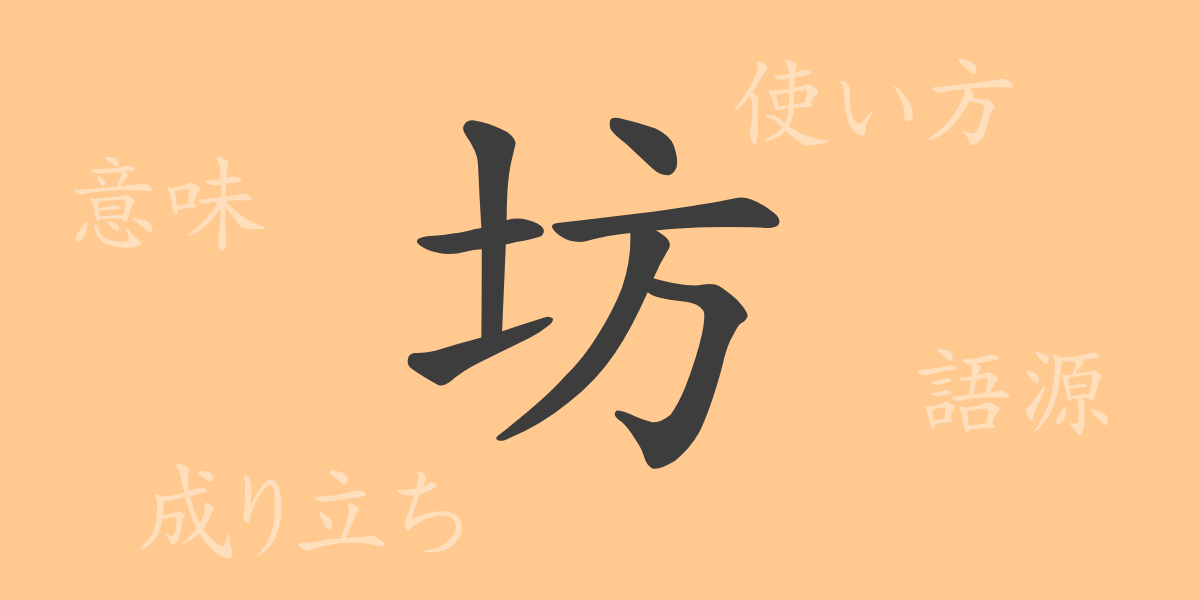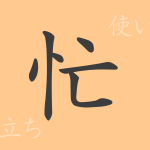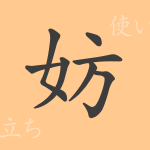In the Japanese language, each kanji character carries a profound history and meaning. “坊” (ぼう, bō) is one such character, widely used as a common kanji in Japan. In this article, we delve into the origins of “坊” (ぼう, bō), its modern usage, readings, stroke count, and the idioms and phrases that incorporate this kanji, revealing its unique charm.
The Origin of 坊 (ぼう, bō)
The character “坊” (ぼう, bō) evolved from a term used in ancient China’s feudal system to denote land divisions. Originally, it was formed by combining the character “方” (fāng), meaning land, and “土” (tǔ), meaning soil. It came to refer to places where land was managed or where monks resided. In Japan, it was introduced during the Heian period and became established as a term specifically referring to monks’ residences or temples.
The Meaning and Usage of 坊 (ぼう, bō)
In modern Japanese, “坊” (ぼう, bō) is primarily used in two ways. First, it refers to places where monks or practitioners live, such as “寺坊” (じぼう, jibō), meaning temple quarters. Second, it is used affectionately to refer to young boys or young men, as in “坊や” (ぼうや, bōya) or “坊主” (ぼうず, bōzu). It is also used in place names and town names.
Readings, Stroke Count, and Radicals of 坊 (ぼう, bō)
The readings of “坊” (ぼう, bō) vary depending on its usage, but the common readings are as follows:
- Readings: The on’yomi (音読み) is “ボウ” (bō), and the kun’yomi (訓読み) is “ぼう” (bō).
- Stroke Count: “坊” (ぼう, bō) has a total of 8 strokes.
- Radical: The radical is “土” (つち, tsuchi), related to kanji characters that signify soil.
Idioms, Phrases, and Proverbs Using 坊 (ぼう, bō)
Some idioms, phrases, and proverbs that include “坊” (ぼう, bō) are as follows:
- 寺坊 (じぼう, jibō): Temple and its associated buildings.
- 坊主 (ぼうず, bōzu): A colloquial term for a monk or a person with a shaved head.
- 坊や (ぼうや, bōya): An affectionate term for a young boy or a young man.
- 坊主憎けりゃ袈裟まで憎い (ぼうずにくけりゃけさまでにくい, bōzu nikukerya kesa made nikui): A proverb expressing the psychological state of hating everything related to a disliked person.
Summary of 坊 (ぼう, bō)
Understanding the history and meaning embedded in each kanji character is immensely valuable for deepening one’s comprehension of the Japanese language. The kanji “坊” (ぼう, bō) began as a term for land divisions in ancient China and became cherished in Japan as a word for monks’ residences and young boys. Observing how a single kanji carries diverse cultural backgrounds and evolves in its usage over time offers a glimpse into the vibrant history of language. Let’s continue to explore the rich world of Japanese kanji, starting with “坊” (ぼう, bō).

























